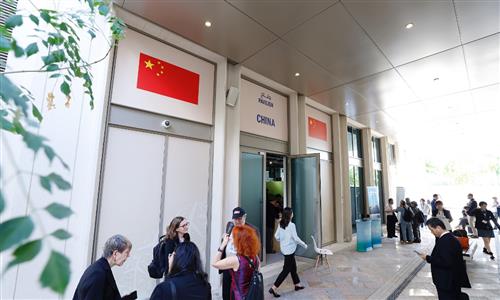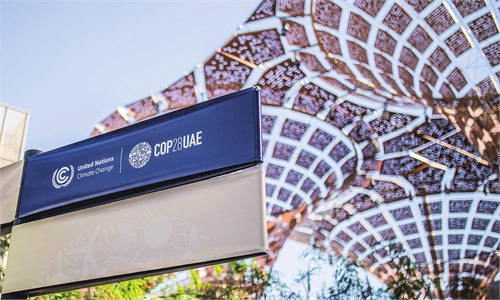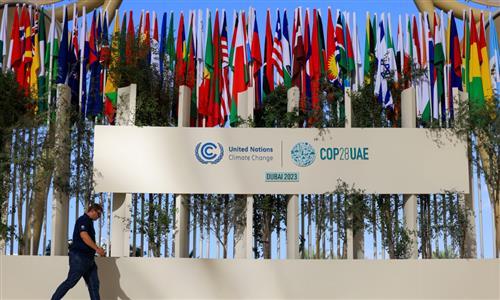International cooperation needed for developing countries to strengthen methane control, overcome shortcomings: China’s climate envoy at COP28
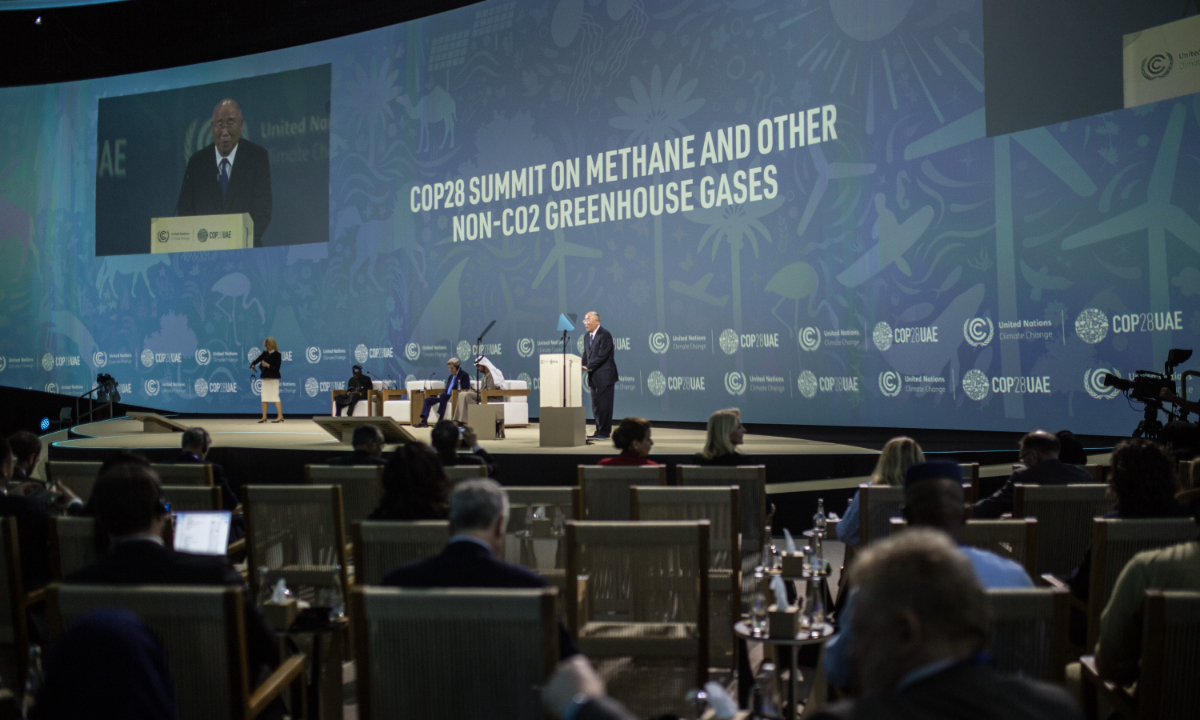
COP28 summit on methane and other non-CO2 greenhouse gases on Saturday. Photo: Shan Jie/GT
During the 28th session of the Conference of the Parties to the United Nations Framework Convention on Climate Change (COP28) on Saturday, China's climate envoy Xie Zhenhua emphasized the urgent need for international cooperation to enhance methane control in developing countries and urged global unity and action.
Xie, China's Special Envoy for Climate Change, addressed the summit on methane and non-carbon dioxide (CO2) greenhouse gases at COP28 in Dubai on Saturday. The event was graced by figures like US Special Presidential Envoy for Climate John Kerry and Dr. Sultan Ahmed Al Jaber, the COP28 President and Minister of Industry and Advanced Technology of UAE, among other global leaders.
Xie delineated China's efforts and successes in controlling methane emissions. With a sequence of policies and programs in recent years, China has made progress in reducing methane and other non-CO2 emissions. Initiatives in the energy sector to curtail methane emissions from energy production, encourage methane recovery and reuse, and in the agricultural sector to promote the recycling of livestock and poultry waste and the zero growth action for fertilizers have been pivotal.
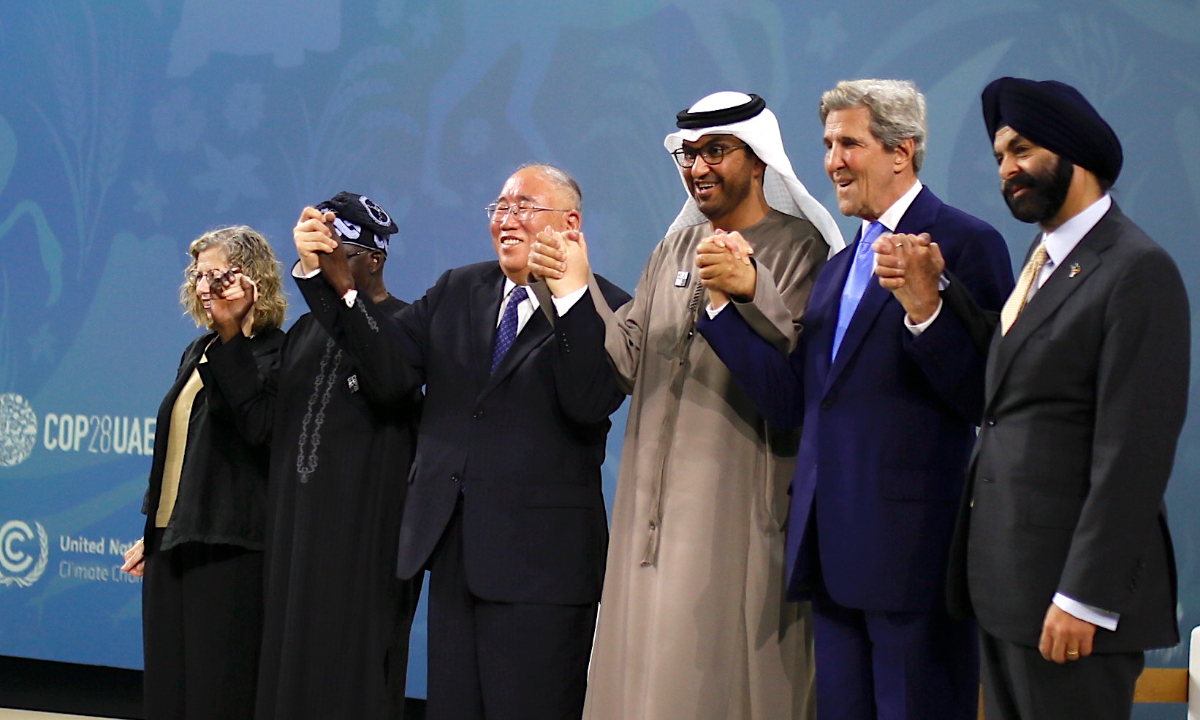
COP28 summit on methane and other non-CO2 greenhouse gases on Saturday. Photo: Shan Jie/GT
Xie also acknowledged the challenges that developing countries, including China, are facing in controlling emissions of methane and other non-CO2 greenhouse gases.
"China is still a developing country and faces a series of severe difficulties and risks in controlling emissions of methane and other non-CO2 greenhouse gases," he emphasized, adding that "China's work on methane emission control started late and has a weak foundation. The data is unclear, and there are insufficient statistical accounting and monitoring capabilities, an imperfect regulatory, standard, and policy system, and an urgent need for improvement in technical and management capacities."
"The task of controlling methane and other non-CO2 gases in China is not easy and cannot be achieved overnight. It requires long-term arduous efforts, extensive foundational work, and capacity building," he noted.
"I believe that many developing countries are in the same situation as us. We are willing to act, but our capabilities are lacking, and we need to continue to work hard and strengthen this area through international cooperation," he urged.
This November, the Chinese government released an action plan for methane emission control. Xie said that China will transform the institutional design and task requirements of the methane plan into substantive, continuously strengthening foundational capabilities. "Meanwhile, we will properly handle the relationship between methane control and energy security, food security, industrial chain, supply chain security, and ensuring the well-being of the people," he stated.

